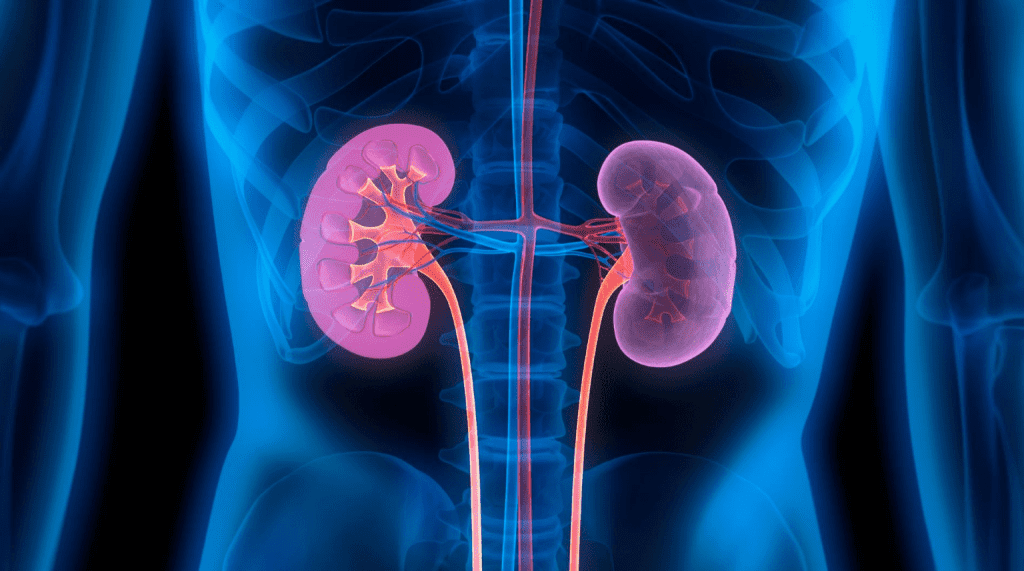The human body is an intricate system of organs, each with its own vital role in maintaining overall health. Among these, the kidneys stand out as one of the most essential for survival. Located just below the rib cage on both sides of the spine, kidneys are responsible for a range of important functions, including regulating blood pressure, filtering waste, and maintaining a proper balance of electrolytes. However, when these vital organs become damaged, it can lead to kidney disease—a condition that can be life-threatening if not managed properly.
What is Kidney Disease? Understanding Its Impact

Kidney disease occurs when the kidneys become damaged and lose their ability to perform crucial functions. This can happen gradually or suddenly, depending on the type of kidney disease. Dr. Pooja Budhiraja, a nephrologist at Mayo Clinic, categorizes kidney disease into two main types: acute kidney injury (AKI), which is reversible with timely treatment, and chronic kidney disease (CKD), which is usually irreversible and requires ongoing management.
In CKD, the kidneys lose their ability to filter waste and toxins from the blood, leading to a buildup of harmful substances in the body. As the disease progresses, it can cause a variety of complications, including high blood pressure, heart disease, anemia, nerve damage, and fluid retention. Without treatment, CKD can eventually lead to end-stage kidney failure, which is fatal without dialysis or a kidney transplant.
The Most Common Causes of Kidney Disease
The development of kidney disease can be attributed to a variety of factors, many of which are related to lifestyle choices or underlying health conditions. Here are some of the most common causes:
High Blood Pressure (Hypertension)
One of the leading causes of kidney disease is high blood pressure, which can damage the small blood vessels and filtering units in the kidneys over time. When blood pressure remains consistently high, it puts strain on the kidneys, impairing their ability to function properly. Over time, this damage can lead to chronic kidney disease, making it crucial to manage blood pressure effectively.
Diabetes
Diabetes, particularly when poorly controlled, is another major risk factor for kidney disease. High blood sugar levels can damage the blood vessels in the kidneys, impairing their ability to filter waste. In fact, diabetes is the leading cause of end-stage kidney failure, and individuals with diabetes are at a much higher risk of developing kidney disease.
Immune System Disorders
Certain immune system disorders can also lead to kidney disease. For example, conditions like lupus and glomerulonephritis (inflammation of the kidney’s filtering units) can cause significant damage to the kidneys. When the immune system attacks the kidneys, it impairs their ability to filter waste, leading to chronic kidney disease over time.
Kidney Infections
Recurrent kidney infections, also known as pyelonephritis, can damage the kidneys if left untreated. Chronic infections can scar kidney tissue, impairing their function and increasing the risk of kidney disease. It’s essential to seek prompt treatment for urinary tract infections (UTIs) to prevent them from spreading to the kidneys.

Birth Defects and Structural Abnormalities
In some cases, kidney disease may develop as a result of birth defects or structural abnormalities in the urinary tract. These conditions can cause blockages or prevent the kidneys from functioning properly. In children, these congenital issues are a common cause of kidney disease.
Acute Kidney Injury (AKI): A Sudden, Reversible Condition
While chronic kidney disease develops slowly over time, acute kidney injury (AKI) can occur suddenly and often results from a specific trigger. Common causes of AKI include:
- Dehydration: Severe dehydration can reduce blood flow to the kidneys, leading to temporary kidney failure.
- Blood loss: Significant blood loss due to surgery, trauma, or other medical conditions can impair kidney function.
- Urinary tract obstructions: Blockages, such as kidney stones or blood clots, can prevent urine from flowing properly, causing kidney damage.
- Low blood pressure: Conditions like heart failure or blood loss can cause low blood pressure, leading to insufficient blood flow to the kidneys.
- Heart disease: Conditions such as heart failure or a heart attack can impair kidney function by reducing blood flow.
AKI is a serious condition, but with timely treatment, it can often be reversed. The key to preventing long-term damage is to address the underlying cause as quickly as possible.

Managing Kidney Disease: Treatment Options and Lifestyle Changes
While chronic kidney disease has no cure, there are several treatment options available to help manage symptoms, slow progression, and address complications. The goal is to maintain kidney function for as long as possible and prevent severe health issues. Some of the treatment options include:
Medication
Medications can be prescribed to manage complications of kidney disease, such as high blood pressure, anemia, and fluid retention. For example, erythropoiesis-stimulating agents (ESAs) are injections that signal the body to produce more red blood cells, helping to manage anemia in kidney disease patients.
Dialysis
In advanced cases of kidney disease, dialysis may be required. Dialysis is a medical procedure that artificially filters waste and excess fluids from the blood when the kidneys can no longer perform this function. There are two types of dialysis: hemodialysis, which involves filtering the blood through a machine, and peritoneal dialysis, which uses the lining of the abdomen to filter blood.

Kidney Transplant
For patients with end-stage kidney failure, a kidney transplant may be the only option. A kidney transplant involves replacing the damaged kidney with a healthy one from a donor, providing the patient with a chance for improved kidney function and quality of life.
Lifestyle Changes
Lifestyle changes are an essential part of managing kidney disease, especially in the early stages. Adopting a healthy diet, exercising regularly, and quitting smoking can help prevent further damage to the kidneys and improve overall health. Managing underlying conditions like high blood pressure and diabetes is also crucial to slowing the progression of kidney disease.
Preventing Kidney Disease: Proactive Steps You Can Take
If you’re concerned about kidney disease, there are proactive steps you can take to protect your kidneys and prevent damage. Regular check-ups with your healthcare provider can help detect early signs of kidney disease. Managing underlying health conditions, such as high blood pressure and diabetes, through medication and lifestyle changes is key to maintaining kidney health.

Dr. Budhiraja advises, “If you are concerned you may have kidney disease, consult your primary care provider for initial tests and management of underlying conditions.” Early detection and management are crucial in slowing the progression of kidney disease and preventing complications.
Conclusion: Protecting Your Kidneys and Your Health
Kidney disease is a serious and often overlooked condition that affects millions of people worldwide. The most common causes of kidney disease include high blood pressure, diabetes, immune system disorders, and kidney infections. While there is no cure for chronic kidney disease, early detection, proper management, and lifestyle changes can help prevent further damage and improve quality of life.
By understanding the risk factors and taking proactive steps to protect your kidneys, you can reduce the likelihood of developing kidney disease and enjoy better overall health. Remember, your kidneys play a vital role in your body’s well-being, and taking care of them today can help you maintain a healthier future.


